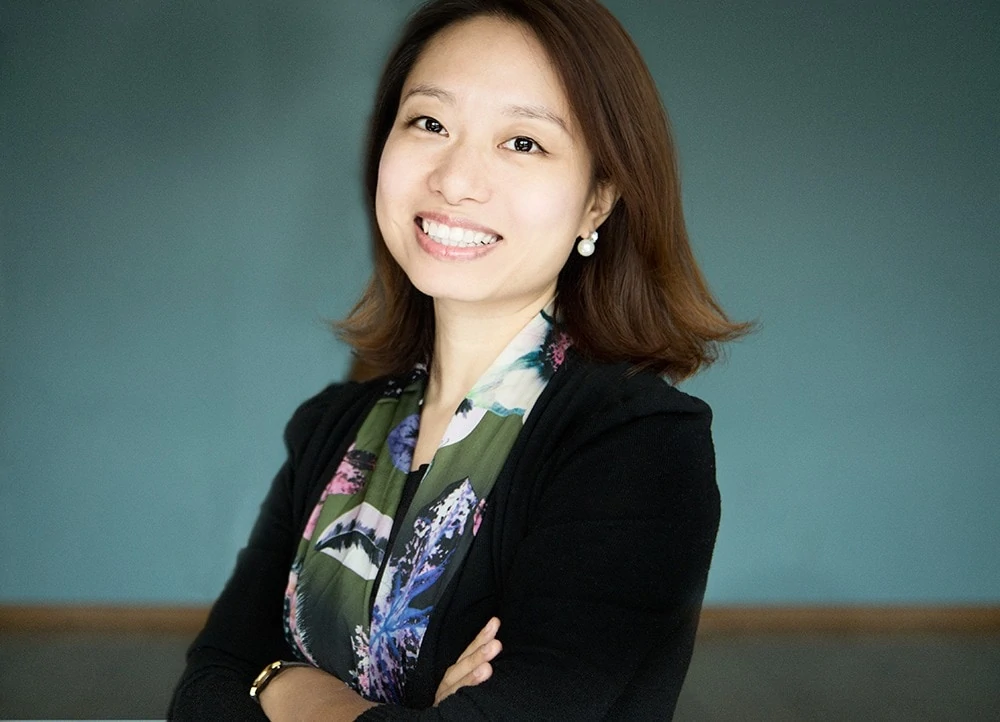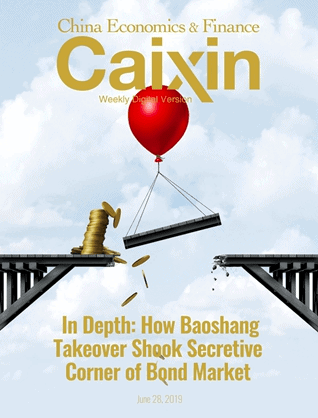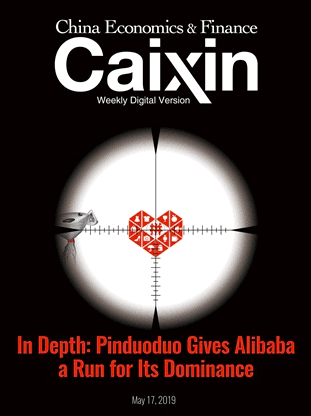Li Xin is vice president of Caixin Media – one of China’s most prestigious news publications. Here she explains why independent journalism is more important than ever
Can you introduce yourself?
I’m a native of Chongqing, a place known for its hot pot, hilly landscapes, and one of the world’s largest city populations – 30 million. But I have spent slightly more time in Beijing than in my home city. I came to Beijing in 1998, starting as an undergrad at Tsinghua University. I still remember horse carts running in the streets of Haidian, which now, of course, is China’s Silicon Valley. After a short two-years’ work at CCTV, I went to Columbia Missouri in the U.S. to pursue a master’s degree at its famous journalism school and learned many Midwestern survival skills on the sidelines, such as driving, not just cars but also tractors, and how to properly say “Missourah”.
Can you tell me a bit about your career path? Which jobs you have had up until now and how you got them?
My career path has been relatively simple in the Chinese context. In a country where changing jobs is the norm, and good social mobility along with that I’d say, I have stuck to one industry. I’ve always worked in journalism, and likely will continue doing that in the foreseeable future. But within that one industry, the trajectory has spanned across a few regions and different organizations.
I started my work in Chinese state-owned media organizations – first with an internship at the Xinhua news agency, then I worked full time as a documentary producer at China Central Television, and I also had the pleasure of working at one of the best international media, the Wall Street Journal, as the managing editor for its Chinese language operation. But my longest professional service, 11 years, is with arguably China’s best team of investigative journalists, first at Caijing magazine, then at Caixin media.
When one starts to use “decade” to count his/her work in one industry, getting jobs takes a little more than information flow in the network and headhunters. But my favourite memory was in 2006, right before I graduated from Columbia-Missouri. I wrote a long letter to Hu Shuli, then chief editor of Caijing magazine, not just asking for a job, but asking her to create a correspondent job in the US and give it to me. At that time, I had been freelancing for Caijing for several months, investigating corrupt Chinese financial officials who fled to the US on the eve of an industry-wide banking restructure. But writing to the Chief Editor directly, also an icon for most journalists in China, was daunting. The email was long, and I probably devoted more passion in writing that than any love letters in my life. Upon receiving it, Shuli turned to my handler, the International Editor, and asked, who is this? One month later, I got the job.
It’s a fond memory partly because it repeats itself all the time. Now I often receive job-seeking cover letters from young journalists, Chinese and non-Chinese. Passion is often a shared language.
What does your role at Caixin involve?
I’m currently a vice president of Caixin Media, and managing director of Caixin Global. In a nutshell, my job is to introduce Caixin, China’s leading financial and business media, to the world – its award-winning investigative journalism, its influential events platforms, and its comprehensive data services.
My first and most important responsibility is managing the English language newsroom and news products. Caixin has about 200 journalists, including about 30 working for Caixin Global, the English version (www.caixinglobal.com). Every day, the English language newsroom provides coverage of China’s business and financial news, providing scoops, depth and context to stories that help the global business community better understand China. It’s a highly professional team, with veteran editors and reporters with decades of experience working for Reuters, Bloomberg, AFP etc. The day-to-day is run by managing editor Doug Young, a senior journalist from Reuters, and my role is more like a publisher, assisting Doug and the team to produce the best coverage.
Be cautious, since truth is often hidden and many try hard to hide it
Like most established business media, there are several natural derivatives of news – intelligence, events and data. China’s market offers unique opportunities on all three grounds, given its inadequate information flow and fast evolving financial policies and investment community. I set up Caixin Global Intelligence, a boutique intelligence team, to provide macro-economic and financial industry analysis, as well as data services, to global institutional and other investors. Moreover, knowledge has to be coupled with networking, and rampant fake information in the social media age highlights the need for offline, face-to-face exchanges. I formed the Caixin Global Roundtable series, hosting eight to ten roundtables in the US, Europe, Asia and other regions in the world, and helped to bring more international content and discussion into the well-known Caixin Summits.
Can you tell me about any specific challenges you have faced in your career?
The news industry has changed dramatically. For me or anyone in the news business, the challenge is to keep up with the changes and find a way to keep ahead. The first challenge came from rising tech platforms, then social media, and later news aggregators assisted by AI. In changing times, actually it’s important to stay true to the mission – news is very much a mission-driven, idealistic profession. The business model might change, but there is always a need for verified, objective, professionally produced information.
Caixin has become China’s first major media outlet to set up a paywall. The paywall provides a closer connection to readers, and has proven to be the way for quality media around the world to stay in business and grow.
There are other challenges too. The need for independent journalism has stayed strong in China in order to provide critical information in a society undergoing rapid transition. But the quality providers are few and far between. Quite a number of journalists have left the profession, for regulatory, business or personal reasons. Temptations have never been stronger to take lucrative jobs in powerful Chinese tech companies.
That’s exactly why I cherish the Caixin team, which is still doing journalism the old-fashioned way – investigate, verify, and verify again. Some stories take reporters months, or even years, to dig out. It requires both courage and resilience.
Do you think social media is a threat to traditional journalism?
I think the relationship between social media and professional media is more complicated than a simple rivalry. On the one hand, social media can provide a public sphere that professional media can certainly benefit from. On the other hand, rumours can crowd out credible but unsensational information.
I often receive job-seeking cover letters from young journalists, Chinese or non-Chinese. Passion is often a shared language
Traditional media have an uphill battle, but I believe they can win. The more information, especially the more untruthful information circulates around, the stronger the need for a trustworthy third party to provide facts. The caveat is, trust takes a long time to build. Media outlets including Caixin are building that very trust day in and day out.
Meanwhile, social media should also recognize that they are media platforms, hence their responsibilities with regard to information quality, and they should be aware of the damage that rumours can cause and take action on that front.
How has the MeToo movement affected the media industry in China?
There have been several cases where courageous victims came out to expose harassment by Chinese TV anchors or high-profile journalists. Overall it has not been a movement in the Chinese media industry but an educational experience and an alarm. It has shown people what behaviours are appropriate and what is not, and what to do when things go overboard.
Caixin was established and is now run and managed by a majority female senior team – do you see that as setting an example for other publications?
The overall male-female ratio at Caixin tilts toward female but the top management it is about 50-50. The real imbalance is at the hiring stage – definitely more female reporters and applicants than male.
There might be a role-model effect. If someone you look up to has shown what can be done, and if that someone is within your sight, they can be there when you need them. That’s a culture I like at Caixin. The culture is largely gender-neutral, but with time more and more females have stepped up and assumed more responsibilities. Every publication has its own culture. As long as it’s fair, transparent, and mission-driven, I believe females will thrive and shine.
What advice do you have for young women aiming to break into the media world?
Be curious, there are so many things out there to be discovered. Be cautious, since truth is often hidden and many try hard to hide it. Persevere, it takes more than a scoop, but a long time, and dedication, to build trust and gain insight.
With all that in mind, have fun. What’s more important than doing something so fun, and having people pay you for that!




